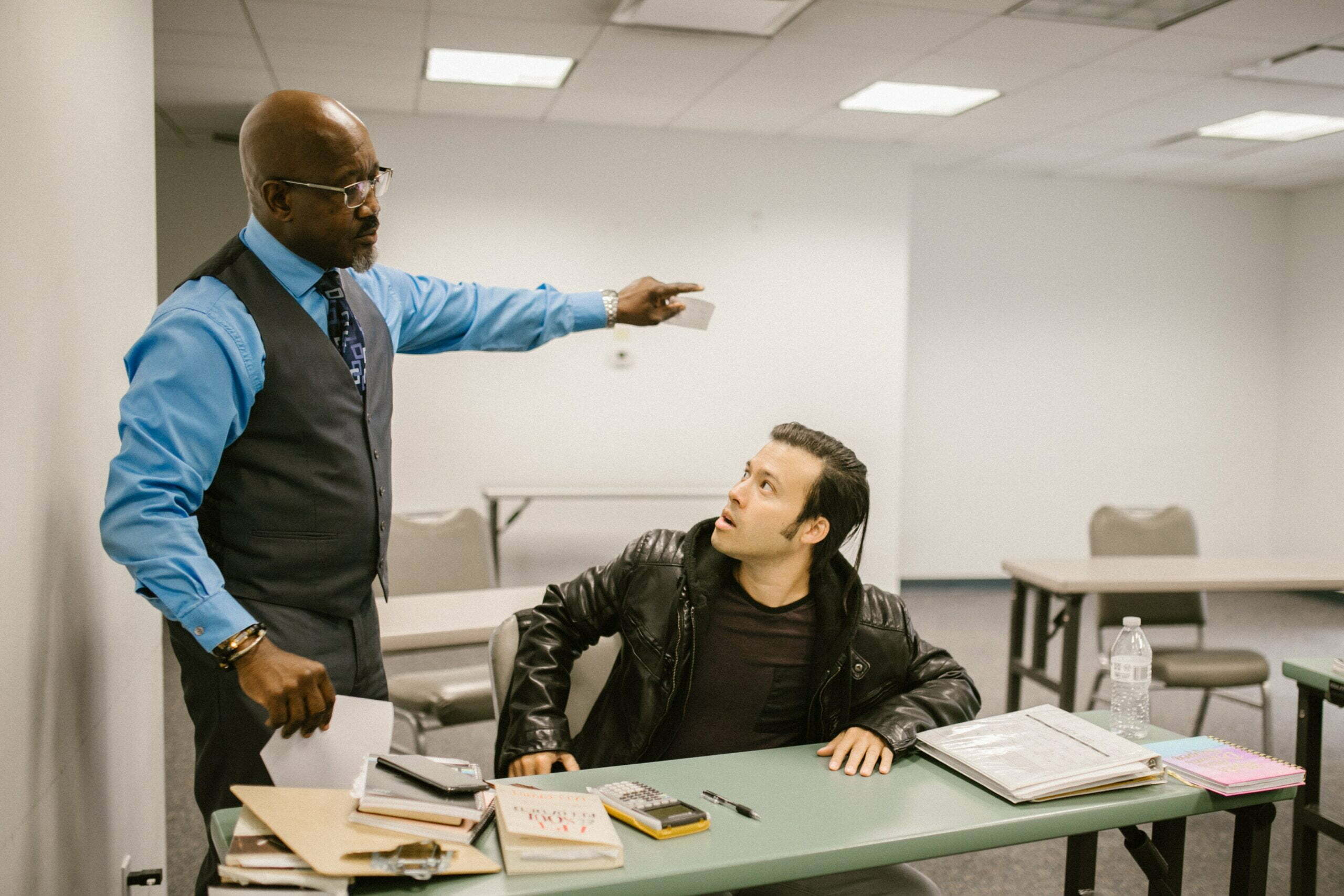Introduction
Cheating on exams with Technology describes the replacement of traditional cheating methods by smaller Technologies that can hold more information.
Although online learning has become a necessity in the era of the Coronavirus, there are misconceptions about what it means to be an online learner. Cheating on exams has been a prevalent topic in the world of education. Many studies confirm that online cheating on exams is way easier than traditional.
Since online courses usually don’t require face-to-face interaction, one may believe that cheating on exams using technological devices is common. In the end, how can an instructor who is thousands of miles away stop students from looking up the answers to their questions?
Students cheat on exams mainly due to the lack of regulation in online classrooms. So far, studies on cheating on exams have had no evidence that cheating might be more frequent in any online environment than traditional environment. Yet, most high schools and university’s students use their phones and laptops to cheat.
Children’s Area suggests five possible facts about cheating on exams in online education. The facts might be a surprise to you.
Online schools don’t care about cheating on exams
There are some notion that online schools don’t have the same strict academic standards as traditional universities and colleges. In fact, these online universities are traditional ones, but they don’t give much attention to the prevention of cheating on exams. In addition, most students wouldn’t follow the school’s code of ethics and wouldn’t care if they were caught red-handed. in brief, gone are the days when students would feel ashamed and scolded by teachers when they are caught red-handed.
Online education programs invest in technologies to improve the student experience and help them succeed, but they don’t invest in technology to prevent cheating. What is more, the few technologies used to identify plagiarism and todetect online cheating on exams are not enough.
Furthermore, most of the faculty’s training in online learning is not adequate in addressing cheating and academic fraud. The various investments made in technology and education shows that online programs have a problem with online cheating on exams.
The difficulty to spot cheaters on exams
When you think about cheating, it’s easy to remember old days in high school where an instructor sitting at the front of the room was looking over each student as they took a test or quiz and would scold anyone who failed to pay attention to his work. Since online education doesn’t provide that physical presence, catching cheaters is not easy. There is always a method to cheat, even before your teacher. However, nowadays, cheating on exams is much easier when you know how to cheat using online apps.
All you have to do to pass an exam is to adjust the camera angle to show your face and not your hands and keep your mobile device in a non-visible area and type the questions online quickly without taking much time and act like you are solving something. The teachers won’t catch you, and you will score high, even better than those who study hard.
Plagiarism checks are easy to fool
Cheating on exams and tests by getting outside details, or obtaining the correct answers, is only one method of cheating. Students cheat on exams using another person’s work without their proper citation has become a fashion.
Plagiarism is everywhere across universities and colleges, both traditional classrooms and online ones, whether intentional or accidental. So, professors of online education could no longer detect plagiarism. Additionally, digital text editing is a common idea for students to copy and paste another’s work using technology.
Plagiarism is found primarily on research and term papers, but it is not a big deal for tests and exams. Many studies have confirmed that cheating on exams in online courses was considerably higher than in traditional courses. In other words, if plagiarism detections were highly efficient, there wouldn’t be these prolific data.
In brief, there is no way to detect plagiarism that is foolproof, so online students can’t expect to avoid it without difficulty.
The online cheating on exams Vs the traditional one
In the past, access to the university was reserved for students with identity card photos. The rooms were large, and exams were monitored to ensure students could not communicate or cheat on the exam.
Everyone had their place; students knew clearly what to bring into the room and what not to bring. The teachers set the tests for students, scored them, and handed out the final grades quickly enough.
However, COVID-19 changed everything. For institutions that had « blended » (face-to-face and online), the shift to digital was not an overnight task. Students and teachers who relied on face-to-face or paper-based teaching and testing were in the midst of a problem in integrating traditional practices and new technologies into the classroom.
In a recent study at Marshall University, 635 undergraduate and graduate students were interviewed about students’ cheating behaviors. The study found that 32.1 per cent of the respondents admitted to cheating during the face-to-face classroom, 32.7% admitted to cheating in an online class. The gap between the two figures is not significant, and it’s important to remember that, in general, more students acknowledged « inappropriate behavior » toward academic dishonesty within traditional classrooms than in online classes.
Studies were conducted to determine how widespread cheating on online tests is compared to face-to-face exams. Cheating on exams using technological devices has shown that students in online learning environments were more likely to be cheating on exams than students in face-to-face or blended learning environments.
Everyone is cheating
In the absence of values and ethics, students find themselves in the dilemma of cheating on exams or relying on themselves to pass. Many students who enroll in online courses indeed choose cheating on exams as an easy way to obtain higher grades. The deep reasons behind cheating on exams differ from one student to another and from one context to another. Some choose to cheat because they have poor academic skills. Students may also cheat on exams to get higher promotions or compete with their other students who cheat. Academic integrity, skill getting and skill using are the last things they would think of. The poor excuse they would put forward is the ongoing saying, « everyone is cheating, why not me? »
Conclusion
Children’s Area urges parents to talk with their children about cheating and expectations regarding honesty, school, and communication. Many parents have not had a meaningful conversation with their children regarding cheating. Try to discuss things with your child before the act of cheating on exams occurs. Some parents might not think it’s necessary to talk about the issue because they believe their child will never be a cheater.
Discuss the social and academic consequences of cheating as well. For example, the school may give your child a zero or kick them out of the class because of cheating. And, even more troublingly, others may not believe they are honest when branded fraudulent or cheating. The information could appear on their transcripts, hindering their academic future.
Your teenager must be aware that cheating and heavy cell phone use can also impact their mental health. Furthermore, research has clarified that mental health issues, specifically self-esteem, stress levels, and academic performance, make teens more likely to indulge in academic dishonesty. Be aware of why your child behavior towards cheating.

